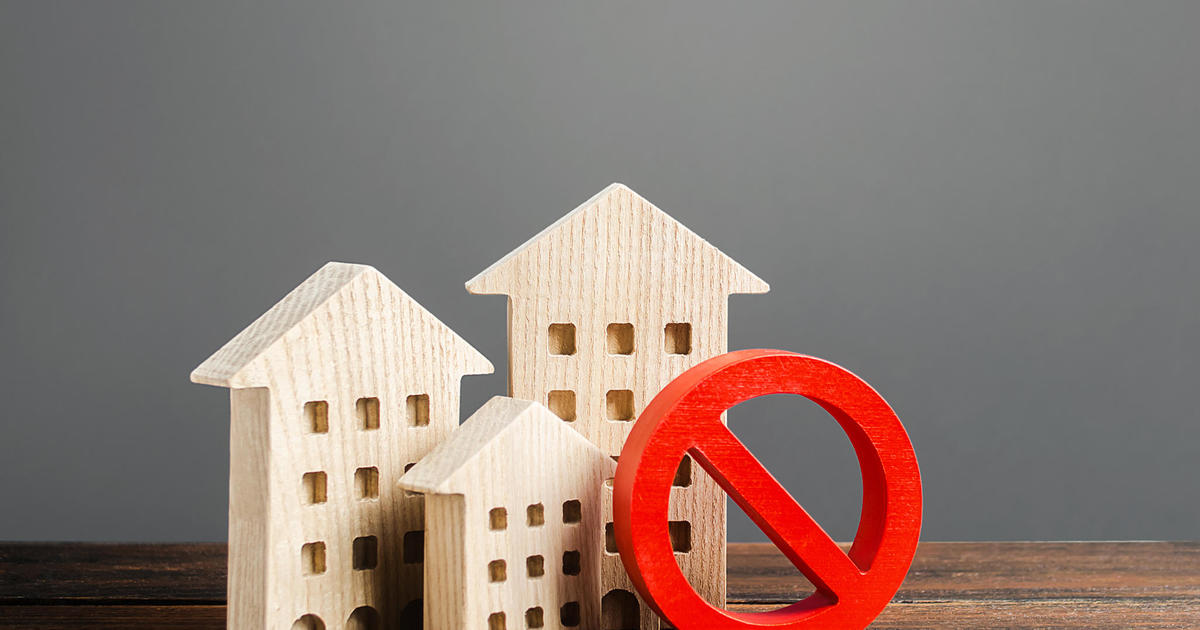The next shock for homeowners: Surging property tax assessments
Anne Van Donsel said she didn't quite believe it when her hometown of Burlington, Vermont, last year sent her a new property tax assessment stating that the value of her home had doubled — raising her property taxes by 20%.
Her property taxes jumped to about $12,000 a year, up from $10,000, a bump she said is adding to the financial strain as inflation pushes up the cost of food and other necessities. While Van Donsel appealed the assessment, she was given only a small reduction in the value of her home, which didn't make a dent in her new tax bill.
"I hadn't planned on spending thousands of dollars more on property taxes for the year," said Van Donsel, 59, a state employee.
Such predicaments are the flip side of the surge in residential real estate prices, as county and city officials blast out out new property assessments to homeowners across the U.S. The housing market surged during the pandemic, sending the value of the typical U.S. home surging to $344,000, or 37% higher than in February 2020 prior to the crisis.
Now, higher property taxes could add to the cost burden of both longstanding and new home owners, further crimping budgets at a time when inflation is at a 40-year high.
Cities and counties typically reassess property values every year or two, although some regions have gaps of several years between reassessments. That means homeowners are just now seeing the real estate boom reflected in their tax bills.
Some homeowners are now getting "sticker shock" when they receive new property assessments, according to John Whitehead, the property assessor of Knox County in Tennessee, which in April sent out new property assessments to its residents, its first in five years. Values in the county, which is home to the city of Knoxville, rose by an average of 40% in the new assessment.
"We had about 10,000 appeals" out of about 210,000 property parcels after the county sent out its new appraisals, he added. "A lot of them, their complaint was that it went up too much — some went up 50%, some 100% or more — and the complaint was it just went up too much at one time, and I understand that. It's the sticker shock."
Record property taxes
Average property tax payments hit record highs last year in some counties, according to an April report by Attom Data Solutions, a real estate data firm. Even so, property taxes have lagged home prices, with the former rising less than 2% last year while single-family home values jumped 16%, Attom said. That means property taxes could soon reflect the higher home valuations, according to the firm.
Some major cities and counties are now sending out new assessments, to the dismay of some homeowners. In Philadelphia, for example, residential values are now 31% higher than during the city's last assessment three years ago; Milwaukee has seen an average increase of 18%, while in Knox County home values are up 40%.
That could impact budgets for longstanding homeowners as well as the millions of first-time buyers who snapped up property during the pandemic. It also could be an unexpected cost for current house hunters, who are facing higher home prices as well as mortgage costs, which means the typical mortgage payment is more than 50% higher than a year ago.
Higher tax bill?
It's important to note that a higher assessment doesn't necessarily mean a bigger tax bill, said Richard O'Donnell of O'Donnell & Cullen Property Tax Consultants. A former tax assessor in Westchester County, New York, O'Donnell explained that the issue is whether your assessment — on a percentage basis — rose more than the town or county's average increase.
A homeowner in Knox County whose home rose 50% in value would end up with a bigger tax bill because their home outpaced the county's average 40% increase, Whitehead noted. Someone whose home rose less than 40% in value would see a reduction in their property taxes.
New assessments are typically designed to be revenue-neutral, meaning that the city or county can't gain revenue through an assessment, experts say. For instance, the new assessments impact taxes if a neighborhood appreciates faster than the city overall. In that case, homeowners in that neighborhood are likely to pay higher taxes.
"Will some older homes be less marketable than newer homes, and will some areas appreciate at a greater pace? Absolutely, and that can create a shift" in how taxes are apportioned between property owners, O'Donnell said.
School budgets and taxes
Homeowners can certainly face higher taxes when their properties are reassessed, but typically the main cause of higher property taxes is school budgets, O'Donnell said. Because property taxes are the main source of revenue for funding local schools, an increase in educational budgets typically translates into higher tax rates.
"Most people don't participate in the budget process," O'Donnell said. "There are a number of work sessions and hearings to address the budget. As a local official, I've been to many. They have a 2,000 seat auditorium and a half dozen people there."
Homeowners in cities or counties that wait several years to reassess properties are more likely to face an unwelcome surprise when the new valuations arrive, he added. "The longer it goes between evaluation one and evaluation two, the larger fluctuations will be and the more upset people will be."
For Van Donsel, it had been 15 years since Burlington, Vermont, last issued property assessments.
"The value didn't seem believable to me. The thought that I could sell it for as much as they assessed it seemed ridiculous," she said, declining to give the newly assessed value of her home. But, she added, real estate values have only increased since then. "Maybe it could now."



